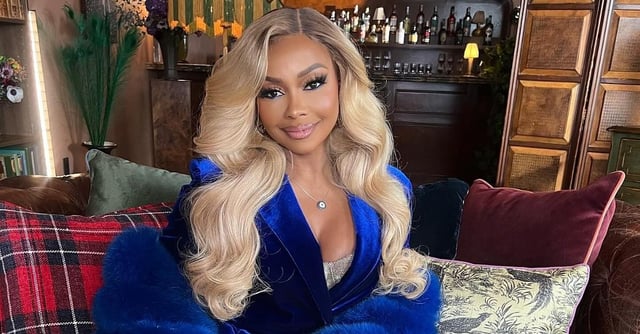
From Scandal to Spotlight: Why Phaedra Returned to RHOA
The unforgiving glare of reality television operates on a unique, almost cyclical rhythm. It demands drama, thrives on conflict, and often, with a curious blend of amnesia and anticipation, offers a path to redemption, or at least, a second act. Few figures embody this intricate dance with the public eye quite like Phaedra Parks, the sharp-witted Southern belle whose dramatic exit from The Real Housewives of Atlanta seemed to seal her fate, only for her to re-emerge, not just in the periphery, but squarely back in the spotlight. Her return, from the ashes of a reputational inferno, wasn't merely a quest for financial gain, but a calculated, multi-faceted reclamation of her narrative, her brand, and her very public identity.
Phaedra’s departure from RHOA in 2017 was not a quiet fade-out but a spectacular immolation. The infamous Season 9 reunion laid bare a lie so audacious, so cruelly targeted, it sent a seismic shockwave through the cast and fanbase alike. Phaedra was exposed for fabricating a malicious rumor that Kandi Burruss and her husband, Todd Tucker, had attempted to drug and sexually assault Porsha Williams. It was a betrayal of trust, a manipulation of the highest order, and a breach of the unwritten reality TV code: drama is good, but baseless, dangerous slander is not. The ensuing public outcry, coupled with the palpable disgust of her castmates, made her continued presence on the show untenable. Phaedra, the polished lawyer, the doting mother, the spiritual guide, found her carefully constructed persona shattered, her name synonymous with deceit. Her career, her friendships, and her public image seemed irreparably scorched.
For years, Phaedra existed in the liminal space of post-reality TV exile. While she continued her legal work and maintained a social media presence, the omnipresent Bravo cameras, which had once defined her public life, were absent. This vacuum, however, created a unique opportunity. Time, as the saying goes, heals all wounds, or at least, allows the public to forget the sharp edges of past transgressions. The RHOA landscape itself shifted; new faces emerged, some faded, and the show, while still popular, arguably yearned for the gravitas and distinct personality that only a seasoned veteran could bring. The siren call of the spotlight, with its promise of renewed relevance and substantial financial reward, is a powerful elixir for those who have tasted its intoxicating sweetness.
Yet, to simply attribute Phaedra’s return to money or a hunger for fame would be to underestimate the strategic mind of Phaedra Parks, Esquire. A lawyer by trade, Phaedra approaches public perception with the precision of a litigator. Her re-entry into the Bravo universe, first through The Real Housewives Ultimate Girls Trip and subsequently on Married to Medicine, was not a desperate plea, but a carefully orchestrated maneuver. This was her chance to reshape the narrative, to move beyond the single, devastating act that defined her exit. By engaging with other Bravolebrities in a less confrontational, more controlled environment, she could showcase her wit, her charm, and her evolution, without the constant pressure-cooker dynamics of her old RHOA ensemble.
Her return, therefore, serves several crucial purposes beyond the obvious financial incentives. Firstly, it’s an act of reclamation. Phaedra wants to reclaim her image as a respected professional and a loving mother, proving that one mistake, however egregious, does not define her entire existence. She seeks to demonstrate resilience, showing that she weathered the storm and emerged, perhaps not unscathed, but certainly standing. Secondly, it’s about narrative control. For years, her story was told by others – by Kandi, by Porsha, by the media. Now, she has a platform to tell her own. While she may not directly address the scandal with a full mea culpa, her very presence on screen, navigating new friendships and professional endeavors, subtly shifts the focus away from the past and onto her present and future. Thirdly, and perhaps most profoundly, it’s about validation. The spotlight, for reality television personalities, is the ultimate affirmation of relevance. To be invited back, to be desired by the network and the audience, signals that despite the scandal, her unique brand of Southern sass and legal acumen still holds significant entertainment value.
Phaedra Parks' journey from scandal to spotlight is a compelling illustration of the intricate relationship between celebrity, redemption, and the insatiable appetite of reality television. Her return is not just a triumph of personal ambition, but a testament to the genre's capacity for forgiveness, or at least, its willingness to turn the page for a compelling character. She didn't just come back for a paycheck; she returned to rewrite her legacy, to prove her enduring strength, and to remind the world that in the ever-shifting landscape of public perception, a skilled strategist can always find a way to step back into the light.